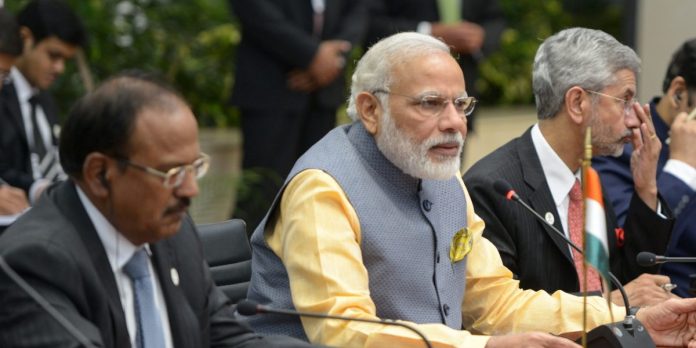DM Monitoring
NEW DELHI: The allegations in a formal indictment issued in a New York court against an Indian national and an ‘identified Indian government employee’, among others, of plotting the murder of a US citizen active in the Khalistan movement are extremely damaging to the reputation of the country and those at the helm of national security.
Without getting into the legal details of the indictment and the case itself it is vital to contextualise the impact it can have on India’s global moral stature and foreign policy-security outlook. The current Indian government has aggressively pursued a policy of narrative control to please and project an image of a ‘global moral power’ and Vishwaguru (world leader) under Modi across each multilateral and plurilateral summit.
More often than not, it is authoritarian countries like Russia, China or North Korea which are in the news for alleged crimes conducted on foreign soil, damaging their reputation. Can one imagine how India’s intel and information sharing architecture with its democratic allies and partners may be disrupted after an episode like this?
In a previous article, this author argued how India’s paradoxical world outlook and waning moral stature in conduct on multilateral (and some bilateral) issues, cannot be enveloped nor hidden in some ‘green tented sheet’.
The US indictment also hints at what may have informed Canadian Prime Minister Justin Trudeau’s sensational September 2023 statement that there were “credible allegations” linking the Indian government to the murder of another Khalistan activist. While Ottawa has not revealed much in public – apparently to preserve the confidentiality of judicial proceedings, a piece published by The Wire says it is clear that “Canadian officials had the Pannun case in mind and that at least some part of the intelligence linking India to Nijjar has come in the form of electronic messages the US has captured”.
We have now seen at least two instances of charges by India’s democratic allies and partners of not being ‘honest’ or ‘truthful’ to its global moral standing. In India’s own amoral, apathetic exceptionalism, there is also a silent embrace of Gandhi’s assassin Nathuram Godse, and his (Godse’s) ideological disposition, as against an embrace of Gandhian ideals of peace and non-violence which made India globally recognised and respected by all powers across the globe.
It’s also buffoonish for India’s foreign policy ecosystem to believe it enjoys an undistilled faith amongst the (still) powerful G7 countries if the tools for channelising instruments of economic integration operate sans the basic domestic prerequisites of realised social cohesion; a safeguarded rights-based constitutional order, ensured by the separation of powers.
India can hardly compromise on these prerequisites if it is serious about playing a more important role in a complex, multi-polar world.




